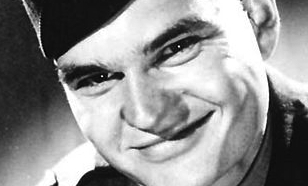In Memoriam: Paul Fussell (1924–2012)

I’d like to add to the recent wave of eulogies in honor of Paul Fussell, poetry and culture critic, veteran of the Second World War and author of a classic study on the First, who died this past week at age 88. Brave, ornery, and fascinating even when wrong, he argued a thesis in The Great War and Modern Memory (1975) that remains brilliantly right:
I am saying that there seems to be one dominating form of modern understanding; that it is essentially ironic; and that it originates largely in the application of mind and memory to the events of the Great War.
This mode of irony, bred in the trenches and nourished by literary and popular culture, permanently wounded all the old Edwardian certainties—about God, country, sex, death, and of course, war. “Every war is ironic,” Fussell wrote, “because every war is worse than expected…[and] because its means are so melodramatically disproportionate to its ends. Eight million people were destroyed [in World War I] because two persons, the archduke Francis Ferdinand and his consort, had been shot.”
In light of his war writings, Fussell’s early criticism may look disproportionate in the other direction, a kind of stoic sublimation of trauma into technical minutiae. Unable for many years to write straightforwardly about his combat experience—among other things, he saw a beloved staff sergeant killed beside him—he fought the battle of English poetic meter instead.
Yet in its own way, this work was as passionate as anything that came later. Into his Poetic Meter & Poetic Form (1965) I read the attitude that if you’re going to write poetry after two world wars, the least you can do is restore a little order to civilization by getting your damned scansion right. By the same token, if you go above and beyond the call and produce a metrical masterpiece, you might qualify as something of a hero:
The poet whose metrical effects actually work upon a reader reveals that he has attained an understanding of what man in general is like. It is thus possible to suggest that a great metrical achievement is more than the mark of a good technician: it is something like the signature of a great man.
Such sunny passages were rare for Fussell. True to his perfect critic’s surname, he attacked everything from poems to pop culture to the American class system with lethal persnickitiness. (“From the 1950s on,” he said, “my presiding emotion was annoyance, often intensifying to virtually disabling anger.”) Here’s the grenade he tosses at Tennyson’s “Ulysses” in Poetic Meter:
Compared with Keats, and even with [Wilfred] Owen, Tennyson uses spondaic substitution in “Ulysses” in a more facile and obvious way:
The lights begin to twinkle from the rocks;
The long/ dáy wánes;/ the slow/ móon clímbs;/ the déep/
Móans róund/with many voices…
This is showy but easy. We get the feeling that one substitution in line 2 would be quite enough: two is too many, and the third, which calls excessive attention to the speaker’s technical powers, almost negates the skill of the first. Tennyson has more success in “In Memoriam,” where he is content to leave well enough alone…
To my ear these are some of the most seductive lines in English poetry, but never mind—Fussell writes with such relentless ballsiness that he almost convinces me “Ulysses” is a hack job. His grudge against the Tennysonian style ran even deeper than this passage suggests; in The Great War he links the diction of Tennyson’s Arthurian poems—the flowery idiom of “steeds” and “valor” and “the fallen”—with the idealism that drove thousands of boys to the Western Front:
The language is that which two generations of readers had been accustomed to associate with the quiet action of personal control and Christian self-abnegation (“sacrifice”), as well as with more violent actions of aggression and defense.
Whether or not this smear by association is fair, it speaks to a critical view I fully embrace. Poetic language is what infiltrates, if not creates, our highest ideals. It is, ultimately, what we believe—scriptures and campaign speeches are built on it—so it’s our duty to read and write it with the utmost care. For decades Fussell, who loathed war but lionized discipline, urged his audience’s toes a little closer to that mark.
[Image courtesy Wikimedia Commons.]





